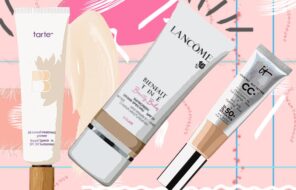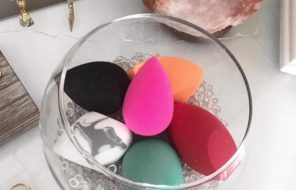Scent can be alluring, mysterious, inviting, and individual. Your signature scent can give a gentle — or bold — impression of who you are before you even say a word. But how do you get started finding a fragrance that feels true to you?
You don’t need to know the ins and outs of every ingredient in a beautiful perfume or even know the difference between a top note and a base note (although knowing some terms can guide you toward scents you’ll love). You just need a nose and an idea of how you want perfume or cologne to make you feel. Scent experts can give you the inside scoop on how to find a scent that suits you.
Scent families and fragrance personality
When you set out to find a new fragrance, you might feel like you’re surrounded by an unfamiliar language. The perfume industry groups scents to organize and describe fragrances more clearly. Here’s your quick translator for common perfume lingo:
- Fragrance family: A group of scents sharing common characteristics. The main fragrance families are floral, woody, fresh, Oriental, and, most recently, gourmand.
- Note: A single scent “ingredient,” like rose or vanilla.
- Accord: A combination of notes that leave an impression of a single scent that’s hard to capture otherwise (e.g., a marine accord may combine several notes into one distinct, oceany aroma).
- Top/middle/base notes: Perfumes change as you wear them, and certain notes evaporate and fade faster than others. A bright but short-lasting citrus might be a top note, and a warm, woodsy note, such as sandalwood, might come through more as a base note after a few hours.
How to use a scent family
Scent families can be a great way to get started finding a perfume or cologne you’ll love. If you like bold and spicy scents, Oriental perfumes can be a great place to start. If you prefer a light scent that reminds you of water, the fresh family can offer enticing options. Good-enough-to-eat perfumes in the gourmand family may highlight honey, coffee, or almond notes.
But while scent families make a good starting place, you don’t want to limit yourself.
Joyce Barnes, chief operating officer for TOCCA, said, “There are a wide range of scents, even within a particular scent family (for example, within the floral family, you have spicy flowers, powder flowers, green or spring flowers), so rather than focus on scent families, I find it helpful to look at fragrance personalities.”
Barnes recommends asking yourself whether a scent smells joyful, flirtatious, or moody, for example. Fragrance mood and depth can color what you’re looking for across different scent families.
How to choose a fragrance that fits
Scent and memory are closely intertwined. Just because a scent reminds you of your high school crush or your beloved grandmother doesn’t mean you necessarily want to smell the same. Choosing a fragrance that fits you depends on balancing the science and emotion behind perfume.
How skin affects scent
Your skin chemistry affects how a fragrance will smell on you. The same scent that suits your best friend might smell a bit off on you or vice versa. Your natural pH balance, oils on your skin, or how much you sweat can make a perfume react differently. A more concentrated Eau de parfum will also carry more intense fragrance than a lighter eau de toilette or body mist.
“It is always best to try a fragrance on your skin and see how it evolves over a few hours,” said Barnes. Discovery sets that offer mini vials of a selection of scents can help you explore ideas.
To test a scent, spray on your skin and give it a few sniff tests over the next few hours.
“If it plays well, it will have added depth and dimension,” said Jeanette Price, a perfumer, and owner of Peachy Keen Perfume. “If it ‘turns’ on your skin, it will feel like a different fragrance entirely, typically a bit sour, stale, or flat.”
One pro tip from Barnes: “Never rub your wrists together after applying fragrance to that area. People think it helps to blend the scent better, but it does just the opposite and breaks it down, so you get less of an effect of the scent.”
Make a perfume memory
The famous literary example of scent memory is Proust eating a madeleine cookie dipped in tea, evoking a powerful childhood memory. You may or may not want to smell like your childhood after-school snack, but you might want to choose a scent inspired by a favorite trip or a memory of a time you felt empowered or free.
To get the most emotional impact from your scent, consider what memories you’d like to bottle up and return to with each spray.
Seasonal perfume ideas
The rule of thumb is to wear lighter, fresher scents in warmer months and richer perfumes with warm or spicy notes when it gets cold. Sweat can intensify your perfume or cologne, so heavier scents can get overpowering (one spray may be plenty). Barnes suggests looking for different forms of scent, like a dry oil, which can have a more delicate effect than an eau de parfum.
Price recommends flipping seasons for scent inspiration. “It might seem counterintuitive, but I recommend thinking of what actually might not be something you smell or taste regularly during that time of year.”
For example, you might be surrounded by vanilla during the winter holidays, so an unexpected scent can stand out in a good way. “During the summer, you might smell more sunscreen, drink more lemonade, or eat more fruits that are in season; see how you feel about coconut, citrus, and peach in the winter time … you just might be missing them,” Price told us.
Have fun with perfume
Whether you’re searching for a single scent to wear for decades or building a fragrance collection, explore and have fun! Order a sample vial just to find out what a chypre accord smells like. Layer a woodsy and a floral scent to make your own custom fragrance. Break rules and create your own (but seriously, stop rubbing your wrists together). A world of fragrance is just waiting for you to discover where you belong.





